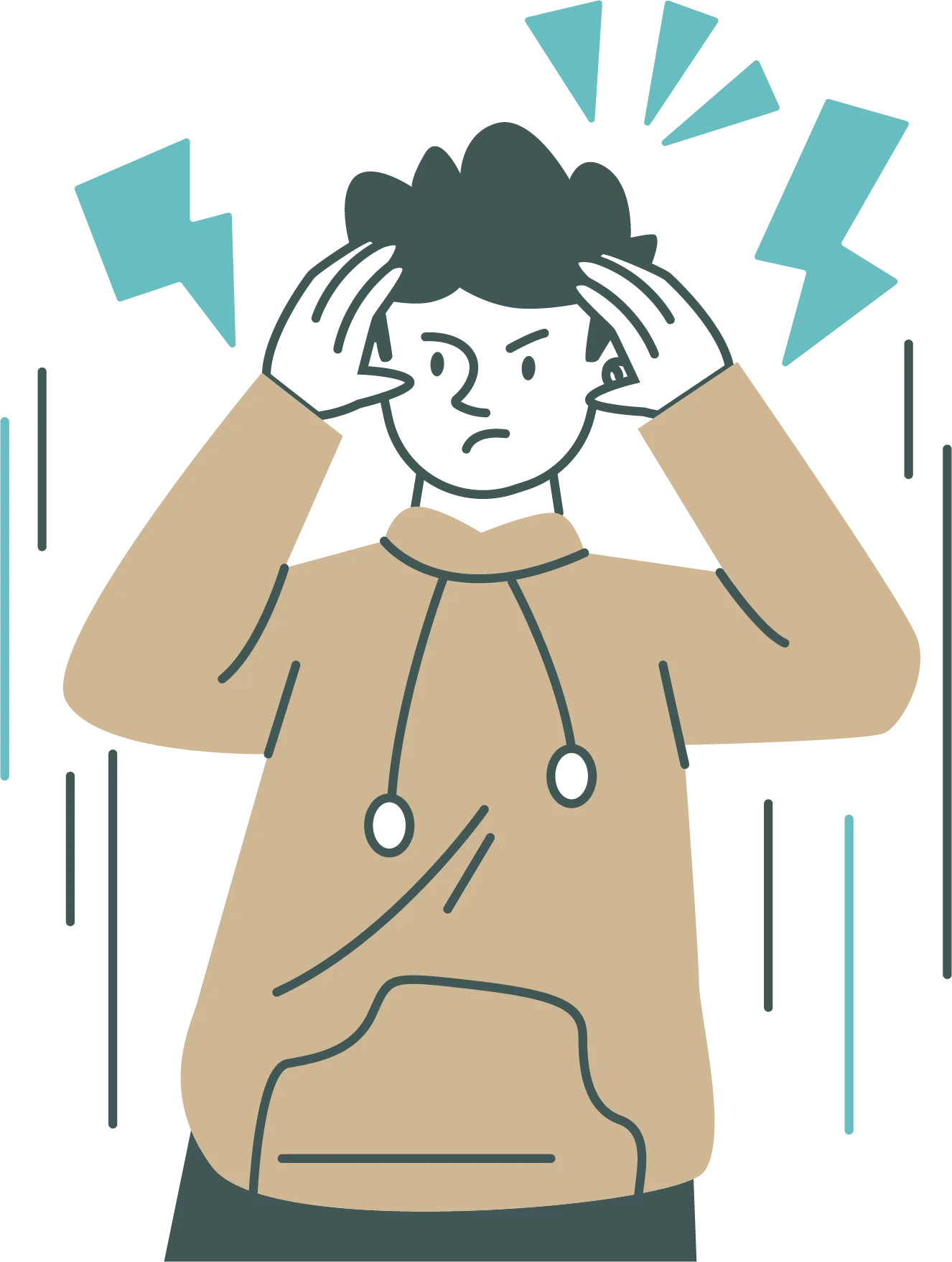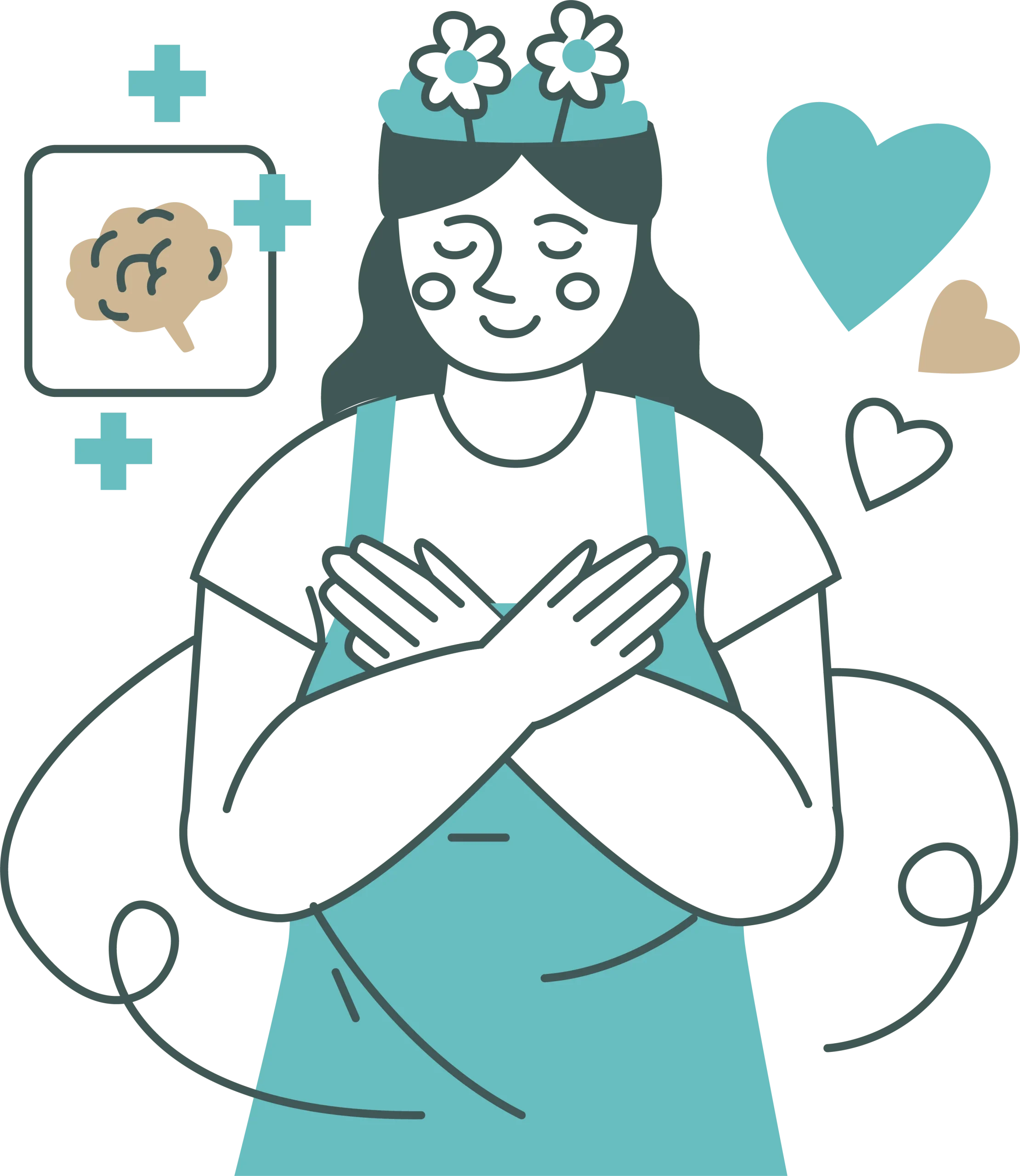Anxiety Disorders
If anxiety is starting to take over your life, you are not alone, and you do not have to face it by yourself.
At Altitude Mind Clinic, we understand how tough anxiety can be. We offer professional telehealth support for people with anxiety, no matter where they live.

What is Anxiety?
Anxiety is a common mental health condition affecting people of all ages and is characterised by intense feelings of fear, worry, or unease about everyday situations. While occasional anxiety is a normal and often beneficial response to stress, persistent or excessive anxiety can interfere with daily life and may signal an underlying anxiety disorder, such as generalised anxiety disorder, panic disorder, or social anxiety.
Anxiety affects the way you think, how you feel emotionally and physically, and how you interact with the world around you. But with the right support, it does not have to control your life.
Let Us Guide You on your Health Journey
Anxiety Symptoms
Anxiety displays in many ways, both physically and emotionally. Symptoms can vary in intensity and frequency, ranging from mild and manageable to severe and debilitating. Common anxiety symptoms include:
Physical Anxiety Symptoms
- Rapid heartbeat or palpitations.
- Shortness of breath.
- Muscle tension or aches.
- Sweating or trembling.
- Fatigue or difficulty sleeping (insomnia).
- Gastrointestinal issues, such as nausea or diarrhoea.
Emotional Anxiety Symptoms
- Persistent worry or fear, often disproportionate to the situation.
- Restlessness or feeling “on edge.”
- A sense of impending doom or danger.
- Sudden panic attacks—intense fear or discomfort that comes on quickly.
Behavioural Anxiety Symptoms
- Difficulty concentrating or focusing.
- Irritability.
- Avoiding certain places, people, or situations.
- Withdrawing from social activities.
It is important to remember that anxiety looks and feels different for everyone. Some people experience all of the above, while others may struggle with only a few symptoms.


Causes of Anxiety
Anxiety often arises from a combination of factors, including biological, environmental, and psychological influences. Common causes include:
- Biological Factors: Genetics, neurotransmitter imbalances (like serotonin or dopamine), and chronic medical conditions (e.g., heart disease or thyroid disease) can contribute to anxiety.
- Environmental Triggers: Trauma, significant life changes, ongoing stress, workplace or academic pressure, and adverse childhood experiences often play a role.
- Psychological Factors: Traits like perfectionism or low self-esteem and poor stress management can increase vulnerability.
- Substance Use and Medications: Caffeine, recreational drugs, or certain medications can exacerbate anxiety symptoms.
The Impact of Anxiety on Daily Life
Left untreated, anxiety can seep into every corner of your life. It can make even small tasks feel overwhelming and affect how you see yourself and relate to others. Anxiety can affect your day-to-day life in the following ways:
Why It Is Important to Seek Help
Anxiety is common, but it is highly treatable. You do not need to “push through” or suffer in silence. With the right support, most people see significant improvements. At Altitude Mind Clinic, we offer evidence-based treatment options, such as cognitive behavioural therapy (reducing unhelpful thinking patterns), mindfulness and relaxation strategies (calm your nervous system and manage stress), and medication (when appropriate, to relieve symptoms and support recovery). We tailor every approach to you, offering compassionate, confidential support, all from the comfort of your own home.
The Benefits of Telehealth for Anxiety Treatment
Our clinic is 100% telehealth, meaning all appointments take place through secure online video or phone calls. Whether you are in a rural area, juggling a busy schedule, or simply feel more at ease in your own space, online sessions for anxiety are an effective and accessible option.
Why telehealth works for anxiety:
- No travel or waiting rooms means less stress and more convenience.
- Greater comfort in familiar surroundings, which can reduce feelings of fear or embarrassment.
- Flexible appointment times to suit your life.
- Easily access anxiety help from home, perfect for people in remote or rural areas.

For many people, telehealth appointments actually make it easier to open up and stick with treatment.